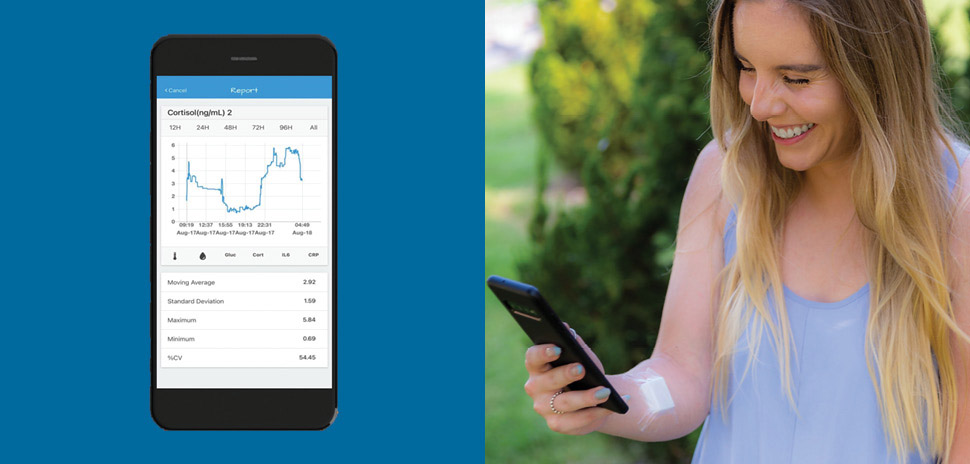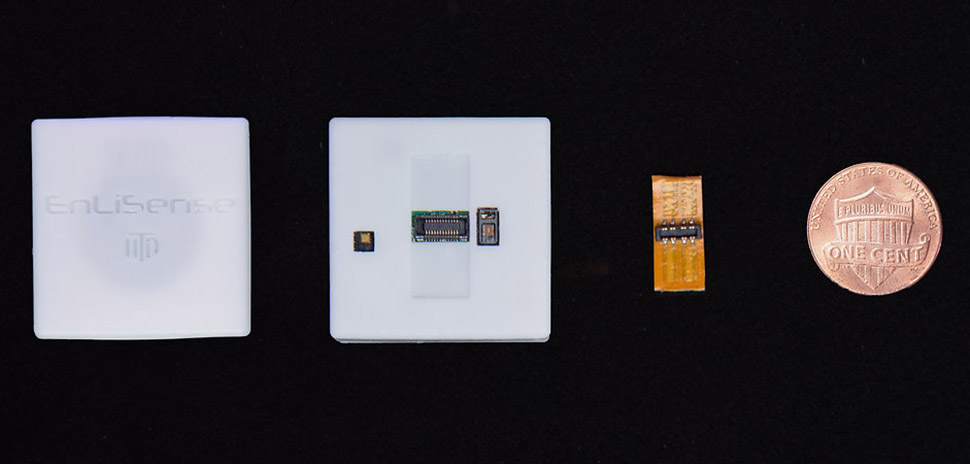Allen-based sensor device company EnLiSense has announced the upcoming summer release of Corti, its innovative wearable that is “set to transform health tracking” by offering personalized, proactive, and precise monitoring of the key stress and sleep hormones cortisol and melatonin.
The company said the wearable features its proprietary passive-sweat sensor technology, which non-invasively rests on your skin, day and night, continuously measuring biomarker levels.
“Corti represents the latest evolution of our advanced passive-sweat sensor technology, underpinned by rigorous clinical validation,” Dr. Shalini Prasad, PhD, professor and department head of bioengineering at UT Dallas and co-founder of EnLiSense, said in a statement. “Building on our extensive inflammatory biomarker research, we’re actively conducting additional clinical studies that further validate cortisol and melatonin monitoring into our technology, providing a non-intrusive way to proactively keep an eye on our health.”
The company’s current portfolio consists of sensing solutions for non-invasive detection of blood glucose, stress, and inflammatory biomarkers in sweat. It provides sensing solutions for detection and quantification of multiple biomarkers of cardio-vascular diseases in small volumes of whole blood.
EnLiSense said its underlying technology reflects more than a decade of research resulting in over 30 publications, with over 500,000 biomarker readings recorded in recent years demonstrating the technology’s robustness.
Redefining health monitoring

Photos: Corti
EnLiSense said that Corti originated as a tool for identifying inflammation markers in autoimmune disorders. Now, it provides users with real-time insights into their wellness, establishing a new benchmark for the continuous monitoring of these critical biomarkers.
According to EnLiSense, Corti redefines health monitoring by offering continuous, real-time visibility into the body’s key stress and sleep hormones, cortisol and melatonin, marking a first in the wearable market.
EnLiSense said those hormones undergo substantial fluctuations throughout the day, influenced by personal lifestyle choices. Melatonin’s activity levels change within just 20 to 30 minutes, and cortisol levels typically peak 15-30 minutes after stress onset, each while influenced by their unique circadian pattern illustrating the complex daily journey of our hormones, the company said.
Unlike traditional hormone assessments that often yield a single, less informative snapshot, the company said that Corti delivers an unparalleled depth of data, capturing more than 3,000 measurements for each biomarker in a single week.
That extensive data allows users to observe both the immediate and long-term effects their lifestyle decisions have on their health, providing a detailed view of their hormone levels’ natural circadian rhythms for the first time, the company said.

EnLiSense’s Corti health wearable has a small profile [Photo: Corti]
Corti’s real-time insights offer a new dimension in understanding personal health, sleep analysis, and stress management, EnLiSense said. Users can uncover what triggers stress hormone spikes, see how melatonin levels align with their sleep readiness, and learn how diet, exercise, and other lifestyle choices impact these short-term and chronic stress levels.
By “comfortably tracking” the changes throughout the day and night, Corti sheds light on how activities affect base hormone levels and circadian rhythms, providing a deeper understanding of aging health and wellness impacts, the company said, adding that the information empowers users to make informed decisions for a healthier life, tailored to their body’s unique personal responses.

Left to right: Dr. Sriram Muthukumar, co-founder of EnLiSense LLC; Dr. Shalini Prasad, co-founder of EnLiSense LLC and head of bioengineering and the Cecil H. and Ida Green Professor in Systems Biology Science at UTD; and bioengineering research scientist Dr. Kai-Chun Lin, who has worked with the co-founders on sensor technology [Photo: UTD]
More uses for sensors
This year, Corti will continue to introduce a range of sophisticated functionalities for its Corti users, EnLiSense said. That includes advanced analytics dashboards and unique AI models, designed to enhance users’ understanding of the dynamics of their stress and sleep hormones.
This suite will provide users with “unprecedented” benchmarking data and insights and include an integrated journaling feature allowing users to connect their daily routines—such as diet, exercise, and sleep patterns—to hormonal variations seen in their data, the company said.
EnLiSense said it has opened an active waitlist for those interested in the Corti launch, aiming to improve stress management and sleep quality. The company is “actively working” with partnering businesses to discover new applications, enhancing its integration into various health and wellness ecosystems.
Last year, we told you about how Prasad’s team developed a hand-held rapid saliva test they say can measure THC levels with 94% accuracy to help law enforcement determine the level of impairment of people driving or operating machinery.
Earlier this year, Prasad’s team announced it developed a “first-of-its-kind,” handheld electrochemical sensor that can accurately detect fentanyl in urine “within seconds.”
![]()
Get on the list.
Dallas Innovates, every day.
Sign up to keep your eye on what’s new and next in Dallas-Fort Worth, every day.


































































